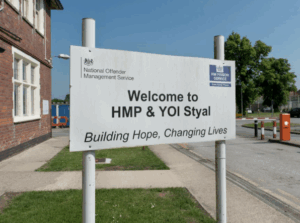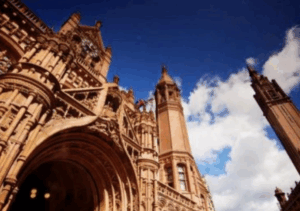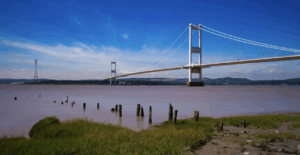The Illegal Migration Bill is on track to become law after the government secured a final series of votes in the House of Lords. This legislation holds significant importance for the prime minister’s commitment to curbing small boat crossings in the English Channel. Despite various amendments proposed by peers, including child detention time limits and modern slavery protections, the government successfully defeated them.
In a late-night debate in the House of Lords, the final proposed changes to the bill were voted down, allowing it to proceed for royal assent. For weeks, Members of Parliament and the Lords have engaged in a battle over the bill’s final form, with opposition peers repeatedly proposing amendments.
One amendment that sought regular reports from the National Crime Agency on immigration crime operations every three months was rejected by a majority of 35, with 201 peers voting against it and 166 in favor. Another amendment, which aimed to provide safeguards for UK-based victims of modern slavery, was also rejected by a vote of 205 to 193.
The Archbishop of Canterbury, the Most Reverend Justin Welby, who had been critical of the bill, withdrew his demand for a 10-year strategy on collaborating internationally on refugees and human trafficking after it was rejected by MPs.
The resolution of the stand-off between peers and MPs clears the way for the bill to receive royal assent, officially transforming it into an Act of Parliament. Initially supported by MPs in March, the bill forms a crucial part of Prime Minister Rishi Sunak’s commitment to ending small boat Channel crossings.
During the Lords debate, Home Office minister Lord Murray of Blidworth emphasised that the number of small boat arrivals had overwhelmed the UK’s asylum system, costing taxpayers £6 million per day for accommodation. He argued that with over 45,000 people making dangerous Channel crossings last year, the situation was no longer sustainable and that it was necessary to disrupt the “business model” of human traffickers.
Lord Murray urged the Lords to respect the will of the elected House and the British people by passing the bill. It would impose a legal duty on the government to detain and remove individuals who enter the UK illegally, potentially to Rwanda or another designated “safe” third country. While the Rwanda plan was deemed unlawful by the Court of Appeal last month, ministers are challenging the ruling.
Shadow immigration minister Stephen Kinnock criticised the bill as “unworkable” and described it as an exercise in “performative cruelty.” He argued that Rwanda would only be able to accommodate a small fraction of the migrants arriving in small boats, making the threat of deportation there ineffective in deterring people from attempting the journey.





































